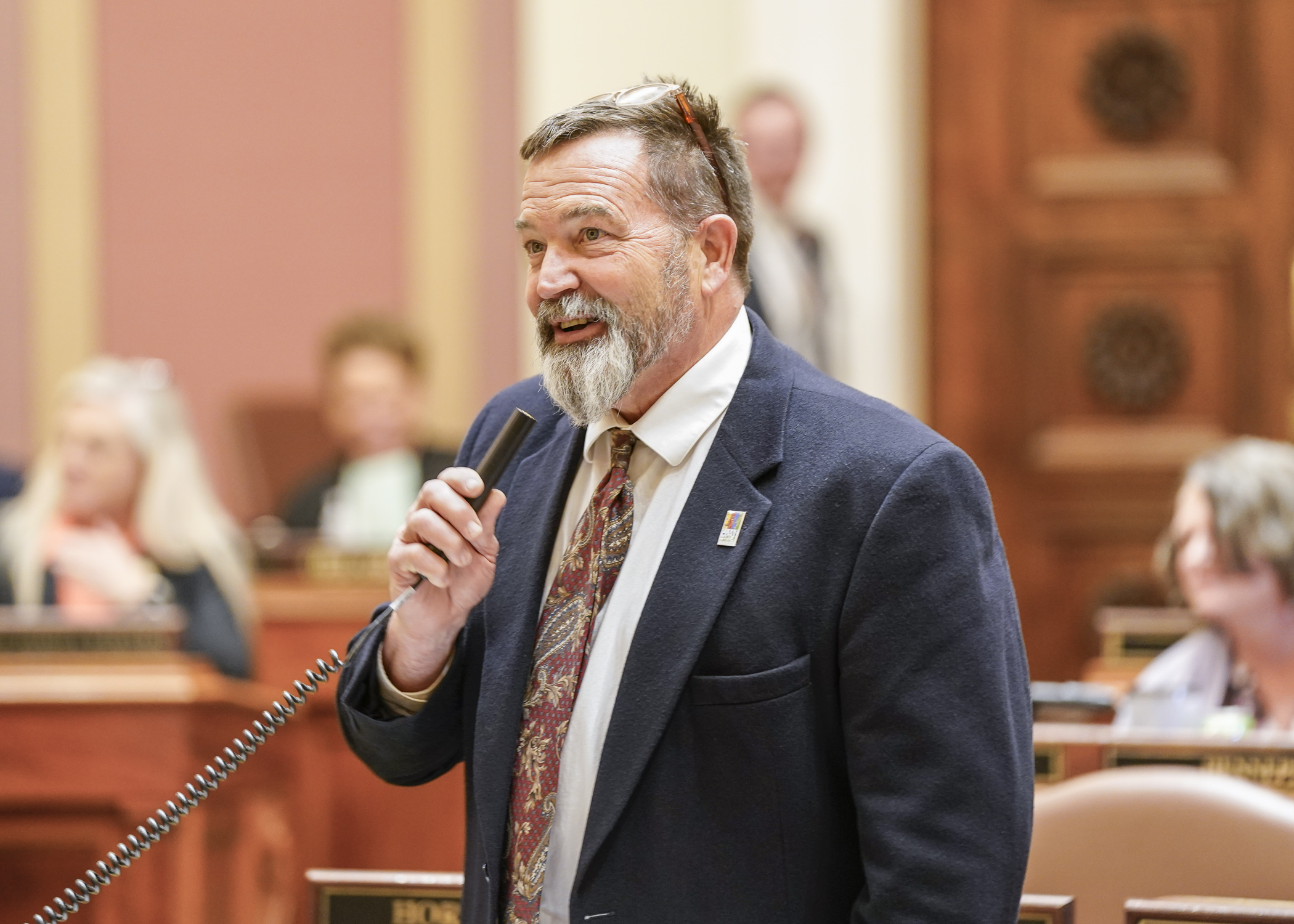House passes nearly $821 million Legacy bill

Come in, the water’s fine.
Or it could be by 2040.
Among other provisions, HF1999, as amended, would set this deadline-driven goal so that all waters achieve their designated use, making them swimmable, drinkable, and fishable.
By a 69-59 vote, the House passed the omnibus legacy finance bill Wednesday with its $820.8 million appropriation over the 2024-25 biennium. The bill now moves to the Senate.
“There’s no other state that has this in the entire country,” said Rep. Leon Lillie (DFL-North St. Paul), the bill sponsor.
“Investing in the outdoors, clean water, arts and culture, and parks and trails is an investment in our quality of life,” House Speaker Melissa Hortman (DFL-Brooklyn Park) said in a statement. “For nearly 15 years, the voter-approved Legacy Amendment to Minnesota’s Constitution has funded initiatives that benefit people and communities across our entire state. Today's legislation continues building on that success.”
The money collected from the 0.375% sales tax increase is distributed as follows: 33% to the Clean Water Fund; 33% to the Outdoor Heritage Fund; 19.75% to the Arts and Cultural Heritage Fund; and 14.25% to the Parks and Trails Fund.
The largest appropriation in the bill — $317.4 million — would go to the Clean Water Fund, some of which includes:
- $156.13 million for grants to implement state-approved watershed-based plans;
- $48.38 million for statewide assessments of surface water quality and trends; and
- $41.68 million to “increase monitoring for pesticides and pesticide degradates in surface water and groundwater.”
[MORE: Read about the bill; View the spreadsheet]
The Arts and Cultural Heritage Fund would get $195.05 million. Notably, the Minnesota Historical Society could expect $37.5 million to provide statewide historic or cultural grants and support state heritage-related programs. The Indian Affairs Council would receive $4.6 million to preserve Dakota and Ojibwe languages.
For restoration, protection, and enhancement of 121,000 acres of wetlands, prairies, forests, and habitat for fish, game, and wildlife, the Outdoor Heritage Fund would get $171.79 million.
The bill would appropriate $136.61 million to the Parks and Trails Fund, mostly split between the Department of Natural Resources and the Metropolitan Council.
Recipients of both the Parks and Trails Fund and Clean Water Fund appropriations would need to make progress towards providing greater access for people with disabilities “where appropriate.”
Discussion and amendments
In prior hearings, members from both sides of the aisle were upset that few direct appropriations made the cut.
Today, Rep. Kaohly Vang Her (DFL-St. Paul) said she appreciates the structural changes, which she believes makes funding more accessible to smaller, often marginalized groups and organizations.
“It more than doubles the amount of funding for cultural identity grants to BIPOC and LGBTQ organizations … and for the first time ever, the legacy funds are investing $1.5 million in capacity-building for small organizations that have historically lacked resources to submit grant applications or try to get funding in other ways,” said House Majority Leader Jamie Long (DFL-Mpls).
Despite voting against the bill in committee, Rep. Samakab Hussein (DFL-St. Paul) said he now supports the investments for younger Minnesotans.
Rep. Josh Heintzeman (R-Nisswa) successfully offered two amendments, including a provision to prohibit money from the Arts and Cultural Heritage Fund being used to promote “domestic terrorism or criminal activities.” The other would bar funding for organizations with sexual assault or sexual harassment judgements within the last two years against someone in a leadership position.
House Minority Leader Lisa Demuth (R-Cold Spring) has “grave concerns” about the bill, but is pleased the amendments were adopted, saying: “Those were the right decisions for Minnesotans. Those were the right decisions to make sure that our tax dollars are not going to fund criminals.”
Related Articles
Search Session Daily
Advanced Search OptionsPriority Dailies
Speaker Emerita Melissa Hortman, husband killed in attack
By HPIS Staff House Speaker Emerita Melissa Hortman (DFL-Brooklyn Park) and her husband, Mark, were fatally shot in their home early Saturday morning.
Gov. Tim Walz announced the news dur...
House Speaker Emerita Melissa Hortman (DFL-Brooklyn Park) and her husband, Mark, were fatally shot in their home early Saturday morning.
Gov. Tim Walz announced the news dur...
Lawmakers deliver budget bills to governor's desk in one-day special session
By Mike Cook About that talk of needing all 21 hours left in a legislative day to complete a special session?
House members were more than up to the challenge Monday. Beginning at 10 a.m...
About that talk of needing all 21 hours left in a legislative day to complete a special session?
House members were more than up to the challenge Monday. Beginning at 10 a.m...